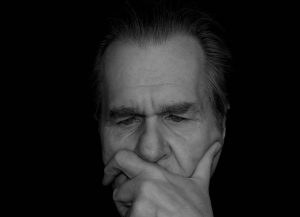Video Link: https://vimeo.com/291647955
Video Download: Click Here To Download Video
Video Stream: Click Here To Stream Video
Video Link: https://vimeo.com/290594093
Video Download: Click Here To Download Video
Video Stream: Click Here To Stream Video
 It's common to emphasize the physical benefits of exercise, but for many people, the psychological benefits of exercise are just as significant, and may even outweigh the importance of losing weight and improving strength and energy levels.
It's common to emphasize the physical benefits of exercise, but for many people, the psychological benefits of exercise are just as significant, and may even outweigh the importance of losing weight and improving strength and energy levels.
It can be hard to establish a diet or exercise plan. Ask anyone that's tried to convert from a sedentary lifestyle to a more thoughtful and active lifestyle.
On the other hand, most people that engage in a life of activity seem to feed off of it, and the psychological and physiological changes caused by a good exercise routine are self-reinforcing. Increased energy levels ward off fatigue.
Sleep comes more naturally and provides improved wakefulness. In general, there is an improved sense of well-being that is directly associated with exercise.
It works the other way around too. People that don't get enough exercise are more likely to struggle to get off the couch or even out of bed.
They also are more likely to suffer from memory issues and are more likely to suffer from problems with anxiety and depression. Many psychological problems have a direct physical component.
Mental fatigue and physical fatigue go hand in hand. People that don't get enough physical activity have a tendency toward anxiety that suppresses their psychological well-being.
 The Body and Mind are Inextricably Linked
The Body and Mind are Inextricably Linked
In short: to facilitate a confident and robust mental outlook, you need to establish an excellent physical routine.
Of course, many people can remain happy no matter what their physical state happens to be, but there is a reliable and robust correlation between physical activity and mental health.
There's no substitute for the opinion of your doctor or therapist, but as long as you are healthy enough for exercise, neither will deny the power of a good workout regimen.
Exercise Relieves Depression
For men and women with mild to moderate depression, activity has shown itself to be a powerful method to relieve and mitigate depression. For many, the benefits are as healthy as those associated with antidepressants.
Antidepressants can be beneficial, but most have some potentially significant side effects, and not every medication works for everyone.
Those that suffer from chronic, severe depression will likely still need pharmaceuticals to improve their mental health state, but as with any drug, if you can afford to do without, you should.
In addition to alleviating depression, exercise also reduces the chances of relapse for patients that have escaped the grip of depression.
 Why Does Exercise Treat Depression?
Why Does Exercise Treat Depression?
There is still so much that we don't know about the brain, especially when it comes to our emotions and our psychological state and frame of mind, but there are some things that we are beginning to understand more thoroughly.
For example, we know that exercise encourages the production of endorphins, the physical rush that you feel from exercise or anything that you find exciting and fulfilling.
Endorphins boost your energy and improve your physical and psychological resilience.
Furthermore, high levels of physical activity also improve the physiology of the brain and body in other ways. Inflammation is a substantial barrier to healthy energy levels, and exercise is shown to suppress the inflammatory response.
It also encourages neurons to grow and their connections to strengthen, which helps you stay alert and reinforces positive relationships in the brain.
Imaging studies have also shown that exercise produces neurological waves that are directly affiliated with a sense of wellness and relaxation.
A less scientific (but still relevant) reason why exercise helps enhance mental health is that it merely keeps the mind busy.
It's hard to latch on to negative thoughts or become consumed with negative feelings when your body and mind are active.
The Effects of Exercise on Anxiety
In addition to depression, exercise also has a surprising impact on anxiety that can be equally potent.
Exercise has been shown to reduce stress and lessen tension while increasing energy levels of all kinds, mainly through the physiological effects of the endorphins that we mentioned earlier.
One thing to consider when you exercise is that, when you actively engage in your exercise routine, rather than keeping your mind aloof, the psychological boost is enhanced even further.
Keep your mind active as your body is active. Watch what's going on around you.
Take everything in and engage in mindfulness. Remember that your body and mind are a unit.
This also has the dual purpose of not only improving your mental state but also helping you associate your lessened anxiety and enhanced well-being with the act of exercise.
Exercise Alleviates Mental and Physical Stress
Anxiety is the right-hand partner of stress. Worry is the feeling of being fraught with fretfulness while stress is when you feel like the weight of the world is on your physical and metaphorical shoulders.
Stress produces a terrible feeling of being emotionally and physically tense. Physical stress can lead to mind-bending headaches, muscle pain, and fatigue. The pain can even make it harder to focus your eyes!
Stress produces profound symptoms, including stomachache, heartburn, insomnia, cramps, fluttering heartbeat, and chest tightness.
It can create an atmosphere where it's not only painful to move, but even to think and feel. The counter-intuitive thing about stress is that, when it feels hardest to get out and get moving, that's when it helps you the most.
Tense muscles only get relaxed with exercise, and it's the same with a nervous mind. You have to keep active and moving, physically and mentally, to ward off the suppressing effects of stress.
Benefits of Exercise for Mental Health
In addition to depression and anxiety, exercise has been shown to be an effective means to aid in the treatment of a variety of other mental disorders as well.
Patients with personality disorders, dementia, relationship issues, grief, addiction, schizophrenia, bipolar disorder, and eating disorders all experience positive results when exercise is combined with traditional treatment regimens.
Exercise also has a positive impact on other issues that suppress psychological wellness, such as chronic illness and pain, and even the ephemeral lousy mood or case of the blues.
One of the great things about exercise is that it's not only safe, but it's free, and it doesn't have associated side effects or an unfortunate social stigma attached to it.
For many of the less severe psychological conditions, exercise may be the only thing that you need to improve your mental and cognitive state.
 How Does Exercise Benefit the Mind?
How Does Exercise Benefit the Mind?
There are a host of psychological benefits connected with exercise.
In addition to endorphins, other vital hormones associated with a healthy mind are released, including norepinephrine, dopamine, and serotonin.
Serotonin also enhances and stabilizes the production and distribution of various neurotransmitters, which help our mind and body stay connected and produce positive outcomes.
Furthermore, healthy levels of exercise are directly correlated with improved self-esteem, stronger emotional bonds, improved assertiveness, creativity, intuition, cognitive function, memory, insight, learning, and clarity.
All of this works together to provide a sense of relaxation and diminished stressed along with boosted energy and mood!
Ten Ways to Make Exercise a Habit
Find a Buddy to Work Out With – Working out with someone else just makes everything more fun. In addition to that, there's always someone there to keep you accountable and to help you meet your goals.
Focus on Exercises and Activities that You Enjoy – It's easy to fall into the trap of performing specific activities just because they are right for you. Just do what you like and don't let yourself get bogged down by events that leave you bored and unfulfilled!
Exercise on the Way Home at Night, or Before You Get to Work – Taking a detour en route to/from work makes it easy to slot training into your routine.
Exercise as Soon as You Wake Up – For people that have trouble getting out of bed, immediately waking up to exercise can give you more energy and start your day off right.
Take Time Out of Your Schedule and Prioritize Exercise – The most important thing is merely to make exercise one of the essential things in your life. Put your body on a pedestal and make working out a priority.
Keep Track of Your Exercise – Keep a notebook or save your workout details on your phone. Getting to see your progress works wonders for your motivation visually.
Never Fall for the "Too Tired" Trap – Your body has way more energy and versatility than you generally give it credit for. Just because you feel tired and fatigued, doesn't mean that you don't have it in you to exercise, and you will likely even improve your energy levels.
Be Aware of All the Little Things that Change – In addition to the notebook idea, you should also be paying particular attention to the changes which are occurring about your body, your mind, and your habits. Look at yourself in the mirror, pay attention to your energy levels, pay attention to your sleep quality, and more.
Use a Fitness Tracker – There are lots of apps and products out there that can help you track your daily activity and your progress. Don't be afraid to invest in one, even if it's just a simple pedometer!
Don't Be Afraid to Reward Yourself – Our minds love a good challenge, but they love a good reward even more. Don't be afraid to use the carrot-and-stick approach to enhance your motivation!
Contact Us Today For A Free Consultation

- Testosterone for Women [Last Updated On: December 1st, 2023] [Originally Added On: December 29th, 2013]
- Testosterone Androgen [Last Updated On: December 11th, 2023] [Originally Added On: December 29th, 2013]
- Testosterone and Body Building [Last Updated On: December 14th, 2023] [Originally Added On: December 30th, 2013]
- Testosterone Levels [Last Updated On: December 6th, 2023] [Originally Added On: December 31st, 2013]
- Testosterone Gel, Cream, and the Testosterone Patch [Last Updated On: November 28th, 2023] [Originally Added On: December 31st, 2013]
- Buy Testosterone | Types of Testosterone Replacement Therapy Programs, Injections, Cream and Gel [Last Updated On: December 13th, 2023] [Originally Added On: December 31st, 2013]
- Buy Testosterone Injections Online, Testosterone Prescription for Low T, Testosterone Replacement Therapy [Last Updated On: October 16th, 2020] [Originally Added On: January 1st, 2014]
- Aging and Testosterone Replacement Therapy [Last Updated On: December 12th, 2023] [Originally Added On: January 3rd, 2014]
- What Causes Low Testosterone [Last Updated On: December 10th, 2023] [Originally Added On: January 7th, 2014]
- Hormone Levels in Men [Last Updated On: December 4th, 2023] [Originally Added On: January 12th, 2014]
- Hormone Level Testing [Last Updated On: November 29th, 2023] [Originally Added On: January 13th, 2014]
- Types of Testosterone Products and Delivery [Last Updated On: December 8th, 2023] [Originally Added On: January 22nd, 2014]
- Testosterone Therapy Helps Men with Low-T Ward Off Prostate Cancer [Last Updated On: May 29th, 2024] [Originally Added On: December 29th, 2019]
- The Importance of Dietary Fat for Testosterone Production [Last Updated On: July 8th, 2024] [Originally Added On: January 2nd, 2020]
- Testosterone Deficiency and Low-T at Epidemic Levels Among Men in the United States [Last Updated On: May 27th, 2024] [Originally Added On: May 17th, 2020]
- The Effects of Testosterone Therapy on Male Patients -- Who Should Use Testosterone? [Last Updated On: December 20th, 2023] [Originally Added On: June 16th, 2020]
- Does Ibuprofen Contribute to Low Testosterone? [Last Updated On: January 27th, 2024] [Originally Added On: June 20th, 2020]
- The Link Between Testosterone and Lower Rates of Autoimmune Diseases Among Men [Last Updated On: January 30th, 2024] [Originally Added On: June 21st, 2020]
- Weight Cycling and the Problem with Crash Dieting [Last Updated On: April 8th, 2024] [Originally Added On: July 30th, 2020]
- Reexamining Bio-Identical Testosterone Therapy [Last Updated On: June 18th, 2024] [Originally Added On: August 12th, 2020]
- Understanding how Muscle and Fat Impact Body Mass, Weight, and Health [Last Updated On: April 15th, 2024] [Originally Added On: August 25th, 2020]
- The Role of Nitric Oxide in Cancer Proliferation And Prevention [Last Updated On: May 3rd, 2024] [Originally Added On: August 26th, 2020]
- Understanding Heartburn in the 21st Century [Last Updated On: April 24th, 2024] [Originally Added On: August 28th, 2020]
- What is Erectile Dysfunction? [Last Updated On: April 20th, 2024] [Originally Added On: August 30th, 2020]
- Sermorelin Acetate Drug Information [Last Updated On: April 7th, 2024] [Originally Added On: August 31st, 2020]
- The Importance of Proteins, Carbs, and Fats [Last Updated On: March 11th, 2024] [Originally Added On: September 2nd, 2020]
- Low-T Treatment Before and After -- How Testosterone Therapy Improves Vitality [Last Updated On: April 9th, 2024] [Originally Added On: September 6th, 2020]
- Changes to LabCorp Guidelines for Low-T Diagnosis and How They Impact Your Treatment [Last Updated On: July 14th, 2024] [Originally Added On: September 22nd, 2020]
- The Effects of Testosterone on Asthma Prevalence Among Men and Women [Last Updated On: February 19th, 2024] [Originally Added On: October 6th, 2020]
- 7 Exercises to Elevate Testosterone Levels [Last Updated On: June 13th, 2024] [Originally Added On: October 10th, 2020]
- Vitamin A is Essential for Good Health - Are You Getting Enough ? [Last Updated On: April 16th, 2024] [Originally Added On: October 14th, 2020]
- Testosterone and Diet – How to Support Testosterone Levels with Healthy Eating [Last Updated On: June 7th, 2024] [Originally Added On: October 29th, 2020]
- The Significance of Telomeres in Stem Cell Treatments [Last Updated On: March 16th, 2024] [Originally Added On: November 27th, 2020]
- The Influence of Testosterone on Protective Mating Behaviors in Men [Last Updated On: January 25th, 2024] [Originally Added On: December 6th, 2020]
- The Role of Testosterone in Women's Health [Last Updated On: December 24th, 2023] [Originally Added On: December 7th, 2020]
- Testosterone Promotes Bone Health and Can Help Treat Osteoporosis [Last Updated On: February 15th, 2024] [Originally Added On: December 17th, 2020]
- The Relationship Between Testosterone and Cortisol [Last Updated On: April 2nd, 2024] [Originally Added On: December 19th, 2020]
- The Importance of Sex Hormone-Binding Globulin (SHBG) for Healthy Testosterone Levels [Last Updated On: March 9th, 2024] [Originally Added On: December 28th, 2020]
- 12 Health Issues That Can Kill Libido and Limit Sexual Performance [Last Updated On: May 23rd, 2024] [Originally Added On: January 3rd, 2021]
- 4 Foods to Boost Your Testosterone Levels [Last Updated On: February 7th, 2024] [Originally Added On: January 4th, 2021]
- Low Testosterone Symptoms [Last Updated On: December 31st, 2023] [Originally Added On: January 7th, 2021]
- Is Male Menopause Real? The Science of Andropause [Last Updated On: January 15th, 2024] [Originally Added On: January 11th, 2021]
- Relieve Fatigue and Increase Energy with Testosterone Replacement Therapy [Last Updated On: January 16th, 2024] [Originally Added On: January 16th, 2021]
- How to Administer a Testosterone Injection -- Low-T Injection Guide [Last Updated On: February 28th, 2024] [Originally Added On: January 17th, 2021]
- Testosterone Levels Associated with Serotonin Activity in the Brain [Last Updated On: March 26th, 2024] [Originally Added On: January 19th, 2021]
- Grumpy Old Man Syndrome – Causes and Treatments [Last Updated On: June 8th, 2024] [Originally Added On: January 22nd, 2021]
- The Effects of Beer on Testosterone Production and Gynecomastia [Last Updated On: March 21st, 2024] [Originally Added On: January 30th, 2021]
- Testosterone Frequently Asked Questions [Last Updated On: February 6th, 2024] [Originally Added On: February 26th, 2021]
- Testosterone Supplements: Vitamin and Amino Acid Pills Versus Real Testosterone [Last Updated On: November 21st, 2024] [Originally Added On: March 1st, 2021]
- Testosterone Side Effects, Risks, Dangers and Negative Effects [Last Updated On: November 7th, 2024] [Originally Added On: March 2nd, 2021]
- Testosterone for Men [Last Updated On: February 20th, 2024] [Originally Added On: April 13th, 2021]
- Testosterone Testing [Last Updated On: November 9th, 2024] [Originally Added On: May 7th, 2021]
- Hormone Replacement Therapy: Commonly Asked Questions [Last Updated On: February 20th, 2024] [Originally Added On: June 16th, 2023]
Word Count: 1580




















